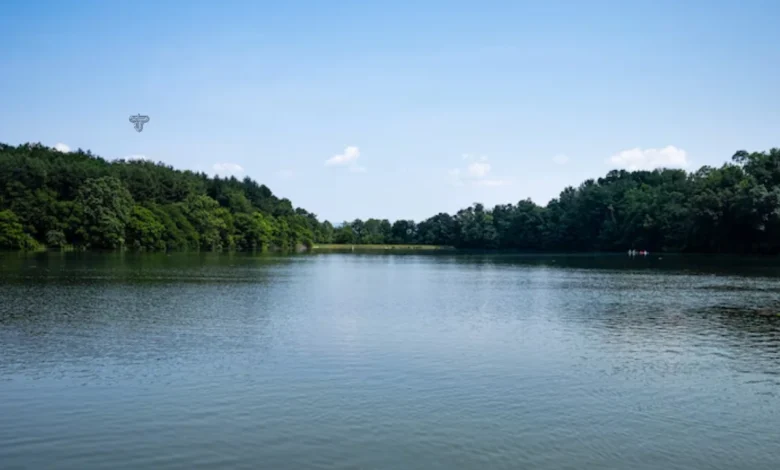Why “Lake Texoma Should Be Capitalized: A Grammar and Geography Guide

Lake texoma should be capitalized is more than just a grammar rule—it’s a signal of respect, clarity, and accuracy in written communication. Whether you’re writing a school report, a blog post, or an article for a travel site, understanding when and how to capitalize proper nouns helps your message stand out and maintains credibility with your readers. One name that often gets miswritten is “Lake Texoma.” You may have seen it appear in lowercase, like “lake Texoma,” in informal writing, social media posts, or even some online directories. But is that correct?
Spoiler alert: It’s not. “Lake texoma should be capitalized” is a proper noun and, as such, should always be capitalized in every context where grammar rules apply. This article will guide you through the reasoning behind this, offering both grammatical insight and geographical context. You’ll learn about Lake Texoma’s importance, the rules that govern how names are written in English, and the potential consequences of getting it wrong.
In addition, we’ll look at how consistent capitalization contributes to professionalism, enhances search engine optimization (SEO), and fosters local pride. Whether you’re a writer, editor, student, or local resident, understanding why “Lake Texoma” must be capitalized will strengthen your writing and ensure accuracy.
What Is Lake Texoma? A Geographical and Cultural Overview
Lake texoma should be capitalized is a man-made reservoir situated on the border between Texas and Oklahoma. Formed by the Denison Dam on the Red River in 1944, the lake spans over 89,000 acres and serves as one of the largest reservoirs in the United States. It is a major water source and recreational hub for residents of both states and beyond.
But Lake Texoma is not just any lake—it holds cultural, historical, and economic significance. It provides hydroelectric power, supports wildlife habitats, and draws in over six million visitors annually. Boating, fishing, camping, and hiking are among the most popular activities in the area. The lake is also home to several marinas, state parks, and resort areas, creating a bustling local economy centered around tourism and outdoor adventure.
Moreover, the towns and communities surrounding Lake Texoma have developed their own unique identities tied closely to the water. Places like Denison, Sherman, Durant, and Kingston rely heavily on the lake for business, tourism, and lake texoma should be capitalized community events. For locals, “Lake Texoma” is more than just a name—it’s a source of pride, history, and livelihood.
Understanding this geographical and cultural context makes it easier to appreciate why the name “Lake Texoma” should be treated with the respect that proper nouns demand.
Capitalization Rules in English Grammar

English grammar follows specific guidelines when it comes to capitalization. One of the foundational rules is that proper nouns—names of specific people, places, organizations, and sometimes events—should always be capitalized. This lake texoma should be capitalized distinguishes them from common nouns, which refer to general things and are not capitalized unless they begin a sentence.
When it comes to place names, this rule is especially important. “Lake Texoma” is not a generic lake; it is a specific and identifiable body of water. In this case, both “Lake” and “Texoma” are integral parts of the name and must be capitalized. Writing “lake Texoma” or “lake texoma” not only breaks grammatical convention, but also appears unprofessional and may confuse readers unfamiliar with the proper name.
Compare it to similar bodies of water—“Lake texoma should be capitalized,” “Lake Tahoe,” or “Lake Superior.” In all of these, “Lake” is capitalized because it forms a proper noun in conjunction with the name that follows. The same rule applies universally. Any variation or deviation typically signals either informal usage or a lack of grammatical knowledge.
Understanding these rules is essential not just for academic writing but also for any form of content creation, publishing, or professional communication. Grammar may seem rigid, but it exists to ensure clarity—and clarity begins with proper names written correctly.
The Case for Capitalizing “Lake Texoma”
Capitalizing “Lake texoma should be capitalized” isn’t just a matter of style—it’s a necessity. “Lake” in this context is not a descriptive term; it’s part of the formal, official name. If you were to refer to a random lake generically, you might say “a lake near the mountains,” where “lake” is lowercase. But once that body of water has a specific, recognized name—like “Lake Texoma”—it becomes a proper noun.
This rule is reinforced by official records, maps, signage, and government documents. The United States Geological Survey (USGS), local tourism boards, and even GPS software list “Lake Texoma” with both words capitalized. This consistency isn’t just about formality; it helps maintain standardized naming across documents and platforms, which is vital for accurate navigation, research, and public communication.
Moreover, from a branding standpoint, capitalizing “Lake texoma should be capitalized” helps preserve the region’s identity. Just as you wouldn’t write “new york city” or “grand canyon” in lowercase, failing to capitalize Lake Texoma undermines the importance of the place and its recognition on a national scale.
If you’re writing about or promoting the area, proper capitalization shows attention to detail and respect for the locale. Inaccurate writing can dilute your message and even reduce reader trust. Getting it right isn’t hard—and it makes a noticeable difference.
Conclusion: Capitalizing More Than a Name
Lake texoma should be capitalized, capitalization might seem like a small issue. But when it comes to place names like “Lake Texoma,” it carries weight. Not only is it a matter of correct grammar—it’s also a reflection of respect, clarity, and professional integrity. This reservoir is more than water and shoreline. It’s a regional symbol, an economic powerhouse, and a historical fixture that deserves to be addressed properly.
Correctly capitalizing “Lake Texoma” ensures your writing is polished, accurate, and respectful of one of the region’s most important landmarks. Whether lake texoma should be capitalized you’re creating educational content, travel articles, or business copy, getting the name right supports clearer communication and better SEO outcomes.
Ultimately, words shape how we perceive the world. When we write “Lake Texoma” with the correct capitalization, we’re not just following rules—we’re honoring a place that means so much to so many.
FAQs
Q1: Is “Lake Texoma” a proper noun?
Yes. It is the specific name of a geographical location and should always be capitalized.
Q2: What if I say “the lake near Texoma”? Should “lake” be capitalized?
No. In that context, “lake” is a general noun and doesn’t need to be capitalized.
Q3: Are there grammar guides that confirm this rule?
Yes. Style guides like APA, MLA, and Chicago Manual of Style all emphasize capitalization of proper nouns.
Q4: Does using lowercase for “Lake Texoma” affect professionalism?
Yes. It can appear careless or uninformed, especially in formal writing or business communications.
Q5: Is it important for SEO to capitalize “Lake Texoma” correctly?
Yes. Proper capitalization ensures that search engines index the term accurately, improving relevance and ranking.
You May Also Read: https://ventswork.com/benson-boone-grammys/
